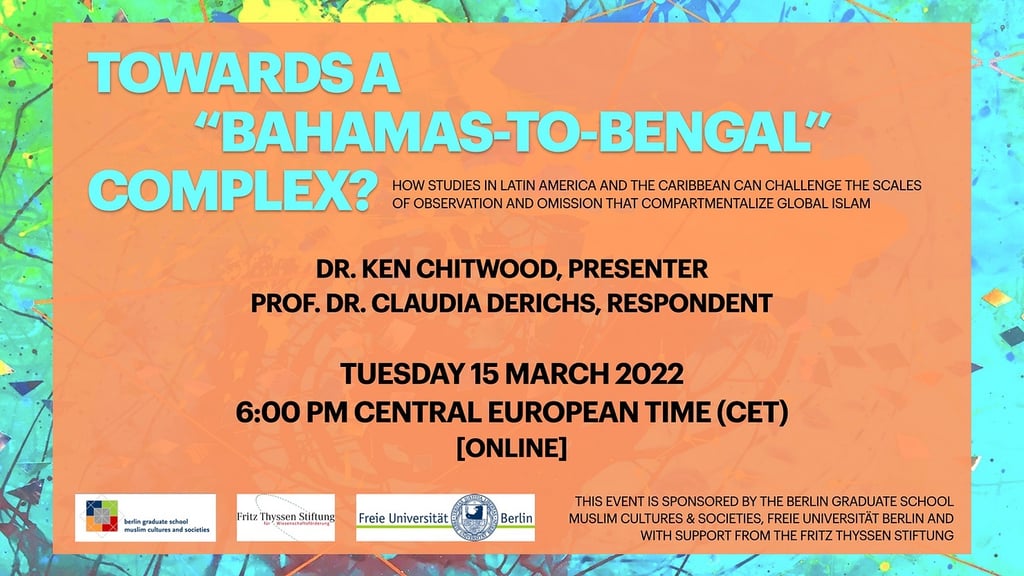Towards a "Bahamas-to-Bengal" Complex?
How studies in Latin America and the Caribbean can challenge the scales of observation and omission that compartmentalize global Islam.
3/1/20221 min read


Despite attempts to broaden our understanding of Muslim networks and the scale of global Islam, most treatments continue to sideline or completely ignore Latin America and the Caribbean in their analysis. These silences and omissions are in large part due to a dominant area studies discourse that continues to rely on center-periphery models and compartmentalizes regions and spaces according to “epistemic borderlines which have been drawn and grown during decades of constructing a 'world order' that is ultimately defined by political power relations.” (Derichs 2015)
Beyond analytical weaknesses, there are serious social and political dangers to delimiting the area of the so-called “Muslim world” to restricted geographies and particular mappings. (Chitwood 2021) There is a continual need to deconstruct myths of separation — including even the most generous conceptualizations of the “Muslim world” such as the "Balkans-to-Bengal" complex — and challenge the “realized fictions of hermetically sealed-off continents, civilizations, peoples, heritages, cultures, and identities” (Guadeloupe 2022) that the field of Islamic studies continues to take for granted.
In this presentation, Chitwood outlines a new research project exploring multiple networks and assemblages that not only shape the contemporary practice of Islam in the Americas, but also form part of the entangled reality of global Islam in the late-modern world. This project traces the criss-crossing economic, political, technological, and cultural lattices of encounter and exchange — past and present — that extend across the Americas, the broader “Muslim Atlantic” (DeHanas and Mandaville 2020, Khan 2020), and other “process geographies” (Appadurai 2000) within global Islam.
By looking at the interconnections, exchanges, and articulations of being Islamic that exist within, between, and across these networks, Chitwood further challenges reified notions of global Islam and offers up new possibilities for future studies in Latin America, the Caribbean, or in other locales like Africa, Europe, South Asia, and beyond.
